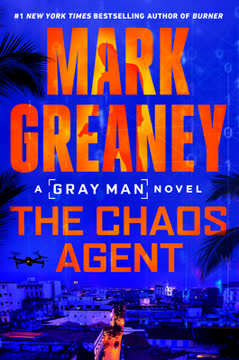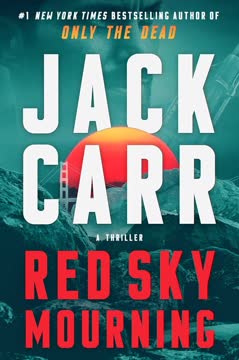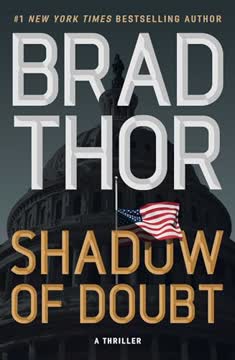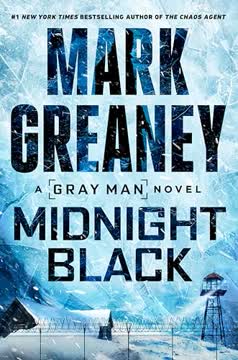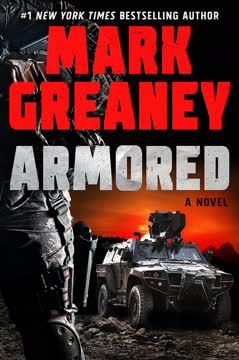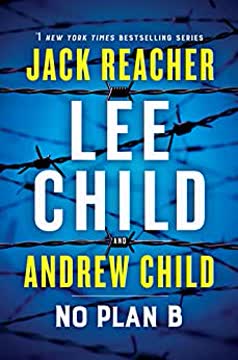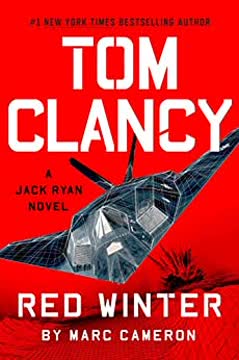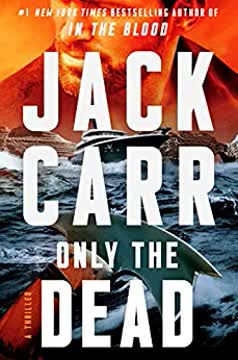Plot Summary
Uganda's Shadowed Rendezvous
Mitch Rapp, legendary CIA operative, and his old friend Mike Nash rendezvous in the wilds of Uganda, summoned by CIA Director Irene Kennedy. The world believes Rapp and his team are dead, and Nicholas Ward, the world's first trillionaire, is presumed kidnapped by terrorists. In reality, Rapp is protecting Ward from a global conspiracy involving the Saudis and, as Kennedy reveals, the plot reaches even higher—into the White House itself. Paranoia and suspicion run high, as Rapp begins to question Nash's loyalty, setting the stage for a confrontation that will test the limits of friendship and patriotism.
Betrayal in the Clearing
In a remote Ugandan clearing, Nash reveals his true allegiance: he's been working for President Anthony Cook, who views Rapp and Ward as threats to his power. Nash's betrayal is not for money, but for what he believes is the greater good—order over chaos, even if it means sacrificing old friends. The confrontation is raw and personal, culminating in a deadly chase through the forest. Rapp, torn between rage and regret, ultimately spares Nash, but Nash chooses suicide, leaving Rapp to grapple with the cost of loyalty and the shifting sands of American power.
The President's Paranoia
Back in Washington, President Cook and his calculating wife Catherine consolidate power, purging agencies of Rapp and Kennedy loyalists. Cook's obsession with Rapp's threat leads to a siege mentality, as he surrounds himself with sycophants and security, while Catherine plots to use the chaos to her own advantage. The Cooks' vision is of a new America—one ruled by strength, surveillance, and the suppression of dissent. Their paranoia sets the nation on a path toward autocracy, with Rapp as the ultimate scapegoat.
Home as Fortress
Rapp returns to his high-security home in Virginia, haunted by Nash's death and the knowledge that the President is now his enemy. Irene Kennedy, also under threat, joins him as they mourn the loss of old friends and the America they once served. The house, once a symbol of safety, becomes a bunker as government forces close in. Rapp's family—Claudia and her daughter Anna—are now in the crosshairs, forcing him to weigh the cost of his fight against the Cooks.
The Cooks' Power Play
The Cooks, aided by CIA Director Darren Hargrave, orchestrate a campaign to discredit Rapp and Ward, using media manipulation, political purges, and covert operations. They attempt to install loyalists in key positions, weaponize the intelligence community against internal enemies, and plot to eliminate Rapp by any means necessary. Their machinations reveal the fragility of American democracy and the ease with which power can be abused when fear overrides principle.
Siege and Escape
When Cook's forces lay siege to Rapp's home, he executes a daring escape through hidden tunnels and drainage pipes, evading elite teams sent to capture or kill him. The pursuit is relentless, but Rapp's skills and paranoia keep him one step ahead. He reconnects with Claudia and Anna in South Africa, but the sense of safety is fleeting. The family is forced into a life on the run, their every move shadowed by surveillance and the threat of betrayal.
The Truce Negotiated
Through backchannels, Kennedy brokers a truce: Rapp and his team will remain in exile and in plain sight, while the Cooks agree to leave them alone. The deal is uneasy, built on mutual distrust and the knowledge that either side could break it at any time. Rapp's world shrinks to a handful of allies, and the cost of peace is perpetual vigilance. Yet, even as the truce holds, the Cooks plot new ways to neutralize their adversaries.
The Enemy Within
As Rapp and his allies scatter across the globe, the Cooks intensify their efforts to root out any remaining threats. Surveillance tightens, and the White House authorizes covert actions to destabilize Rapp's support network. Meanwhile, Nicholas Ward reemerges, using his wealth and influence to challenge the Cooks' narrative. The battle lines are drawn not just between individuals, but between competing visions for America's future.
Bloodbath in Franschhoek
In South Africa, Rapp's family is attacked by a cartel hit squad, a bloody assault that leaves their home in ruins and Anna traumatized. The attack, orchestrated by enemies from Claudia's past, exposes the vulnerability of even the most fortified lives. Rapp and Claudia realize that their enemies are not just political, but personal—and that survival will require confronting old ghosts as well as new threats.
Claudia's Past Returns
The attack in Franschhoek is traced to Gustavo Marroqui, a Guatemalan crime lord with a vendetta against Claudia. As Rapp and his team investigate, they discover that the Cooks have weaponized Claudia's past, leaking her identity to her most dangerous enemies. The line between personal and political blurs, and Rapp is forced to confront the reality that the war against him is now a global, multi-front battle.
The Legion Contract
With Marroqui dead, the threat escalates as a shadowy group known as Legion is contracted to kill Claudia. Legion, a team of elite female assassins, operates with perfect anonymity and a record of never failing. The Cooks, through proxies, have unleashed a weapon that even Rapp cannot easily counter. The hunt for Legion becomes a race against time, as Rapp and his allies scramble to identify and neutralize the threat before it reaches Claudia.
The Hunt for Marroqui
Rapp and Scott Coleman travel to Guatemala, forging uneasy alliances with MS-13 and other criminal elements to locate and eliminate Marroqui. The operation is a brutal, chaotic affair, culminating in the use of a military-grade bomb to obliterate Marroqui's compound. The message is clear: those who come for Rapp's family will pay the ultimate price. Yet, the victory is pyrrhic, as the violence only deepens the cycle of retribution.
Ghosts in Guatemala
The aftermath of Marroqui's death plunges Guatemala into chaos, and Rapp's actions reverberate across the criminal underworld. The Cooks seize on the violence to further discredit Rapp, while Legion quietly moves into position. Rapp's world narrows further, as he realizes that every victory brings new enemies and that the cycle of violence may never end.
The Assassin's Web
Back in South Africa, Legion's operatives—led by Cyrah Jafari—begin their meticulous hunt for Claudia. Using psychological profiling, surveillance, and creative methods, they attempt to engineer an "accident" that will eliminate their target without leaving a trace. Rapp, Claudia, and their allies set a counter-trap, using decoys and misdirection to draw Legion out. The battle becomes one of wits, patience, and nerve.
Baiting Legion
Rapp enlists Sadie Hansen, a chameleon-like operative, to pose as Claudia and serve as bait for Legion. The plan is fraught with risk, as Sadie's own psychological instability threatens to unravel the operation. Bebe Kincaid, a surveillance expert with her own compulsions, joins the team. Together, they create a web of routines and false leads, hoping to lure Legion into making a fatal mistake.
The Trap is Sprung
The trap succeeds: Cyrah Jafari is captured while attempting to assassinate "Claudia" in a hospital. Interrogated by Rapp, she reveals the structure of Legion and the impossibility of calling off a contract once accepted. Rather than kill her, Rapp offers a deal: Legion will redirect their efforts toward a new target—President Cook. The cycle of violence is weaponized against its originator, and the balance of power shifts once again.
The White House Ultimatum
With Legion now hunting the President, Rapp and Kennedy force a final confrontation. Rapp enters the White House under heavy security, handcuffed and surrounded by armed guards. In a tense, private meeting, he lays out the reality: Cook can resign and end the threat, or remain in power and face inevitable assassination. The President, stripped of his illusions of invincibility, is forced to choose between survival and ambition.
Checkmate in Washington
Cook, broken by fear and the realization that his security is ultimately meaningless, resigns the presidency under the pretense of illness. Catherine Cook, ever the strategist, contemplates her own path to power, but the spell is broken. The machinery of autocracy grinds to a halt, undone not by violence, but by the credible threat of it. Rapp, Kennedy, and their allies secure a fragile peace, but the cost is the loss of innocence and the certainty that the cycle could begin anew.
A Fragile Peace
With Cook gone, Rapp and his family remain in exile, uncertain if the peace will hold. Kennedy, haunted by the compromises she's made, reflects on the fragility of democracy and the dangers of unchecked power. The world moves on, but the scars remain. Rapp, Claudia, and Anna try to build a new life, but the shadow of the past lingers, and the threat of new enemies is never far away.
Exile and Uncertain Futures
Rapp, Claudia, and Anna travel through Africa, seeking moments of normalcy amid the chaos. The future is uncertain—will they ever return home, or is perpetual exile the price of survival? As they watch the news of Cook's resignation, they realize that victory is never absolute, and that the fight for justice, freedom, and family is never truly over. The story ends not with triumph, but with the hope that, for now, they have reclaimed their lives.
Characters
Mitch Rapp
Mitch Rapp is the quintessential American covert operative—ruthless, loyal, and deeply scarred by loss and betrayal. His relationships are defined by fierce loyalty, but also by the knowledge that trust can be fatal. Rapp's psychological landscape is shaped by trauma, paranoia, and a relentless drive to protect those he loves, even as the world he once served turns against him. Over the course of the novel, he evolves from a government weapon to a man fighting for his own family's survival, forced to question the very ideals he once defended.
Claudia Gould
Claudia is both Rapp's partner and a woman with a dark past—once the logistics mastermind for her assassin husband, now a mother trying to shield her daughter from violence. Her relationship with Rapp is complex, built on mutual guilt, love, and the shared burden of their histories. Claudia's psychological resilience is tested as her past is weaponized against her, and she must confront the reality that safety is an illusion. Her development is marked by a willingness to face danger head-on and a determination to give Anna a better life.
Anna
Anna, Claudia's young daughter, represents both vulnerability and hope. Her presence forces Rapp and Claudia to confront the consequences of their choices and the impossibility of shielding loved ones from the world's dangers. Anna's trauma and resilience are central to the emotional stakes of the story, and her well-being becomes the ultimate measure of success or failure for the adults around her.
Irene Kennedy
As the former CIA Director, Kennedy is the moral and intellectual anchor of Rapp's world. Her psychoanalytic depth lies in her struggle to balance loyalty to friends with duty to country, and her growing disillusionment with the fragility of democracy. Kennedy's development is marked by her willingness to make hard choices, her capacity for empathy, and her recognition that sometimes the only way to save the system is to break its rules.
Anthony Cook
President Cook is a study in the corrupting influence of power. His initial confidence and charm give way to paranoia, isolation, and a willingness to sacrifice anyone—including old allies—for the sake of control. Cook's psychological unraveling is driven by fear of Rapp and the realization that absolute security is a myth. His relationship with his wife is both partnership and rivalry, and his ultimate resignation is less a defeat than an escape from the monster he has become.
Catherine Cook
Catherine is the true strategist of the White House, more ruthless and clear-eyed than her husband. Her psychoanalysis reveals a woman who believes in order at any cost, and who is willing to manipulate, betray, or abandon anyone—including her husband—to achieve her vision. Her relationship with Cook is transactional, and her development is defined by her ability to adapt, survive, and plot for the future, even as her plans unravel.
Darren Hargrave
Hargrave is the embodiment of bureaucratic ambition—loyal only to power, skilled at weaponizing institutions for personal gain. His psychoanalysis reveals a man who thrives on chaos, who manipulates both the Cooks and the intelligence community, and who ultimately overreaches. His downfall is a cautionary tale about the dangers of unchecked ambition and the ease with which institutions can be corrupted.
Cyrah Jafari
Cyrah, the operational leader of Legion, is a product of trauma, training, and relentless drive. Her psychological complexity lies in her ability to compartmentalize violence, her loyalty to her "sisters," and her willingness to die for her mission. Her confrontation with Rapp is a meeting of equals—each shaped by loss, each seeking meaning in a world that offers little. Her eventual deal with Rapp is both a survival tactic and a testament to the blurred lines between hunter and hunted.
Sadie Hansen
Sadie is a master of disguise and deception, but her psychological instability makes her both asset and liability. Her ability to become Claudia is uncanny, but the role threatens to consume her. Sadie's development is a meditation on identity, trauma, and the cost of living in the shadows. Her relationship with Rapp is fraught, and her eventual removal from the operation is both a relief and a warning.
Scott Coleman
Coleman, Rapp's longtime friend and SEAL team leader, is the voice of hard-edged pragmatism. His loyalty is unwavering, but he is unafraid to challenge Kennedy or Rapp when he believes the stakes demand it. Coleman's psychological profile is defined by his acceptance of violence as a tool, his camaraderie with his team, and his willingness to do what others cannot. He is the backbone of Rapp's support network, and his presence is a reminder that survival is a team effort.
Plot Devices
Duality of Loyalty and Betrayal
The story's engine is the tension between loyalty and betrayal—between friends, between operatives and their country, and between citizens and their leaders. The narrative structure uses shifting alliances, double-crosses, and personal betrayals to explore the psychological cost of trust in a world where everyone is expendable. Foreshadowing is used to heighten suspense, as early hints of Nash's wavering loyalty and the Cooks' ambitions pay off in devastating reversals.
Siege and Escape
The motif of the fortress—Rapp's home, the White House, Ward's compound—serves as both literal and metaphorical prison. The plot uses sieges, escapes, and the constant threat of invasion to mirror the characters' psychological states: always under threat, always on the run. The narrative structure alternates between moments of claustrophobic tension and explosive action, reinforcing the sense that safety is always temporary.
The Weaponization of the Past
Claudia's past as an assassin's accomplice, Rapp's history of violence, and the Cooks' political ambitions are all weaponized against the present. The plot uses dossiers, leaks, and the resurrection of old enemies to show how the past can never be escaped—and how it can be used to destroy or protect. The narrative structure interweaves flashbacks, revelations, and confrontations to build a sense of inevitability and tragedy.
The Shadow War
The use of Legion as a proxy assassin team, the manipulation of criminal organizations, and the reliance on deniable operations reflect the modern reality of power exercised in the shadows. The plot device of the "contract" that cannot be called off creates a ticking clock, while the use of decoys and counter-surveillance turns the story into a chess match. The narrative structure is nonlinear, with multiple fronts and shifting perspectives, emphasizing the complexity and unpredictability of modern conflict.
The Fragility of Democracy
The story's central theme is the ease with which democracy can be undermined from within. The Cooks' manipulation of media, intelligence, and law enforcement, combined with the public's willingness to accept security over freedom, creates a sense of creeping autocracy. The plot uses the White House as both symbol and battleground, and the final confrontation is as much about the soul of the nation as about individual survival.
Analysis
Oath of Loyalty is a high-octane political thriller that doubles as a meditation on the fragility of trust, the corrosive effects of power, and the personal cost of living in the shadows. Through the lens of Mitch Rapp's exile and the Cooks' descent into paranoia, the novel explores how democracies can be undone not by external enemies, but by the ambitions and fears of their own leaders. The story's relentless pace, shifting alliances, and psychological depth make it both a gripping narrative and a cautionary tale. The lesson is clear: loyalty is a double-edged sword, and the line between protector and threat is razor-thin. In a world where surveillance is total and enemies are everywhere, the only true safety lies in the courage to confront both the darkness without and the darkness within.
Last updated:
FAQ
Synopsis & Basic Details
What is Oath of Loyalty about?
- A Global Conspiracy Unveiled: Oath of Loyalty plunges Mitch Rapp into a high-stakes global conspiracy where he must protect Nicholas Ward, the world's first trillionaire, from a plot that extends from Saudi Arabia to the highest echelons of the U.S. government. The world believes Rapp and Ward are dead, a deception designed to unmask a mole within the CIA.
- Betrayal from Within: The narrative quickly shifts from external threats to internal betrayal when Rapp's long-time friend, Mike Nash, is revealed as a mole working for President Anthony Cook. This discovery forces Rapp into a personal war against the very government he swore to protect, as Cook and his wife Catherine consolidate power and target Rapp and his allies.
- A Fight for Family and Democracy: As Rapp's home becomes a fortress under siege, he, his partner Claudia, and her daughter Anna are forced into exile. The story evolves into a desperate struggle for survival and a battle to preserve the fragile remnants of American democracy against a president willing to sacrifice freedom for control, culminating in Rapp's audacious plan to confront Cook directly.
Why should I read Oath of Loyalty?
- Intense Psychological Depth: Readers should delve into Oath of Loyalty for its gripping exploration of loyalty and betrayal, and the psychological toll of living in the shadows. The novel offers a nuanced look at characters like Mitch Rapp and Irene Kennedy, whose moral compasses are severely tested when their country turns against them, providing a rich "Mitch Rapp character analysis."
- Timely Political Commentary: Kyle Mills crafts a chillingly relevant narrative about the "fragility of democracy" and the dangers of unchecked power, as President Cook's autocratic tendencies and surveillance state ambitions mirror contemporary anxieties. The story serves as a cautionary tale, making it a compelling read for those interested in "political thriller themes."
- Masterful Action and Suspense: Beyond its thematic depth, the book delivers relentless action, intricate espionage, and a high-stakes cat-and-mouse game. From Rapp's daring escape from his besieged home to the hunt for the elusive assassin team Legion, the novel keeps readers on the edge of their seats, offering a thrilling "Oath of Loyalty explained" through its dynamic plot.
What is the background of Oath of Loyalty?
- A Nation Divided by Autocracy: The political backdrop of Oath of Loyalty is a United States grappling with an autocratic President Anthony Cook, who exploits societal divisions and distrust in institutions to consolidate power. His administration actively purges loyalists from intelligence agencies and weaponizes surveillance, creating an environment where "the fragility of democracy" is a central theme.
- Technological Warfare and Surveillance: The story is set in a near-future where advanced technology, including deepfake videos, sophisticated AI for surveillance, and untraceable communications, plays a critical role. This technological landscape enables the Cooks' control and Legion's anonymity, highlighting the challenges of privacy and security in the modern age, a key aspect of "Oath of Loyalty analysis."
- Global Espionage and Criminal Underworld: The narrative spans diverse geographical locations, from the remote wilds of Uganda and the wine country of South Africa to the bustling streets of Guatemala City and the White House. It intricately weaves together elements of international espionage, cartel warfare, and the shadowy world of private assassins, showcasing the complex web of "character connections Oath of Loyalty" and global threats.
What are the most memorable quotes in Oath of Loyalty?
- Lincoln's Prescient Warning: "At what point then is the approach of danger to be expected? I answer, if it ever reach us, it must spring up amongst us. It cannot come from abroad. If destruction be our lot, we must ourselves be its author and finisher. As a nation of freemen, we must live through all time, or die by suicide." — Abraham Lincoln (Prelude). This quote serves as a powerful "Oath of Loyalty symbolism" and foreshadows the internal threat posed by President Cook to American democracy.
- Nash's Justification for Betrayal: "The world we've been fighting for is gone, Mitch... People need hardship. They need something to struggle against. Someone to hate and feel superior to. Without those things they lose their identity and sense of purpose... If we don't take control of that, we'll end up in a civil war." — Mike Nash. This chilling rationale for Nash's "betrayal in Oath of Loyalty" reveals a deep cynicism about human nature and the motivations behind his actions.
- Kennedy's Desperate Plea: "I'm not asking this for the Cooks, Mitch. Or even for America. This is for me. I'm asking you for a personal favor." — Irene Kennedy. This line underscores the immense personal cost of the conflict and Kennedy's profound emotional investment, highlighting her "Irene Kennedy character analysis" and the depth of her relationship with Rapp.
What writing style, narrative choices, and literary techniques does Kyle Mills use?
- Lean, Propulsive Prose: Kyle Mills employs a direct, unadorned writing style that prioritizes action and forward momentum, characteristic of the political thriller genre. This "Kyle Mills writing style" keeps the narrative taut and fast-paced, ensuring that readers are constantly engaged with the unfolding events.
- Third-Person Limited Perspective: The story is primarily told through a third-person limited point of view, often focusing on Mitch Rapp's internal thoughts and observations. This narrative choice allows for deep "Mitch Rapp motivations" and psychological insights, while also maintaining suspense by restricting the reader's knowledge to what Rapp (or other focal characters) perceives.
- Foreshadowing and Thematic Echoes: Mills skillfully uses subtle foreshadowing, such as Lincoln's quote in the prelude, to hint at future conflicts and thematic concerns. Recurring motifs like the "fortress" (Rapp's home, the White House, Ward's compound) and the "weaponization of the past" serve as "Oath of Loyalty symbolism," reinforcing the novel's core messages about security, paranoia, and the inescapable consequences of history.
Hidden Details & Subtle Connections
What are some minor details that add significant meaning?
- Rapp's House Drainage Pipe: The seemingly mundane detail of Rapp's oversized drainage pipe, initially a solution for water runoff, becomes his ingenious escape route during the government siege (Chapter 3). This "hidden detail Oath of Loyalty" subtly highlights Rapp's meticulous preparedness and foresight, transforming a background element into a critical plot device for his "siege and escape."
- Sadie Hansen's Big Mac Diet: Sadie's extreme diet of six Big Macs a day to gain weight and mimic Claudia's physique (Chapter 29) is a minor detail that profoundly illustrates her commitment to disguise and the physical lengths she goes to for a role. It underscores her "Sadie Hansen character" as a chameleon, blurring the lines of identity for the mission.
- Bebe Kincaid's OCD and Cleaning: Bebe's compulsive need for order, manifested in her color-coding tools and meticulous cleaning (Chapter 31), is more than a character quirk. It's a subtle connection that Legion exploits by lacing a specific item (romaine lettuce) in her predictable grocery routine, turning her habit into a vulnerability and a key to "baiting Legion."
What are some subtle foreshadowing and callbacks?
- Nash's Physical Decline: Rapp's observation of Mike Nash's physical state—his bad back and weight gain from abandoning cardio for weightlifting (Prelude)—subtly foreshadows his moral and professional decline. It's a callback to his Marine days, contrasting his past physical prowess with his current compromised state, hinting at his "betrayal in Oath of Loyalty."
- Claudia's "Crowded Closet": When Claudia tells Rapp, "We consciously decided to gather all our skeletons and combine them in one closet" (Chapter 7), it's a direct foreshadowing of the return of her past enemies. This line subtly hints at the "weaponization of the past" and the inevitable "Claudia's past returns" that will lead to the Franschhoek attack.
- Rapp's Guilt over Nash: Rapp's internal reflection on how he "forced Nash to take credit for something Rapp himself had done, turning him into a hero" (Prelude) serves as a powerful callback to past events. This moment of self-doubt and guilt subtly foreshadows Rapp's later decision to spare Nash, revealing a deeper "Mitch Rapp motivations" rooted in regret.
What are some unexpected character connections?
- Rapp and Jane Hornig: The brief mention of Dr. Jane Hornig, a notorious interrogator Rapp once used but later abandoned due to her extreme methods (Chapter 48), reveals a darker, more morally ambiguous side of Rapp's past. This "character connection Oath of Loyalty" highlights the lengths Rapp has gone to for information and the ethical lines he's drawn, even as Cook attempts to weaponize her against him.
- Irene Kennedy and Nicholas Ward's Budding Romance: The unexpected development of a potential romantic relationship between Irene Kennedy and Nicholas Ward (Chapter 32, 44) is a surprising "character connection Oath of Loyalty." For Kennedy, whose life has been consumed by the CIA, this hints at a new personal chapter and a shift in her priorities, moving beyond her "Irene Kennedy character analysis" as solely a strategist.
- Rapp's Alliance with Damian Losa: Rapp's decision to contact Damian Losa, a powerful Latin American drug lord who once tried to hire him (Chapter 15), creates an "unexpected character connection." This alliance of convenience, born out of desperation to find Marroqui, showcases Rapp's pragmatic approach and willingness to engage with the criminal underworld when his family is threatened, adding depth to "Mitch Rapp motivations."
Who are the most significant supporting characters?
- Bebe Kincaid, the Compulsive Observer: Bebe, a former FBI agent with a photographic memory and severe OCD, is crucial for her unparalleled surveillance skills and meticulous habits. Her compulsions, while challenging for Rapp, become a key element in Legion's attack strategy, making her a significant supporting character in "baiting Legion" and highlighting the unexpected strengths in perceived weaknesses.
- Sadie Hansen, the Unstable Chameleon: Sadie, a mentally unstable but incredibly skilled operative, serves as the decoy for Claudia. Her ability to perfectly mimic Claudia's appearance and mannerisms, despite her own psychological struggles, is central to the plan to capture Legion. Her presence adds significant "psychological complexities" and tension, making her a memorable "Sadie Hansen character."
- Cyrah Jafari, Legion's Driven Leader: As the operational leader of Legion, Cyrah is a formidable antagonist who mirrors Rapp in her drive and ruthlessness. Her backstory as a former Iranian operative, betrayed by her own government, provides a compelling "Cyrah Jafari character analysis." Her eventual capture and recruitment by Rapp are pivotal, shifting the entire dynamic of the conflict and the "Legion assassins explained."
Psychological, Emotional, & Relational Analysis
What are some unspoken motivations of the characters?
- Catherine Cook's Presidential Ambition: Catherine Cook's unspoken motivation is her relentless ambition to secure the presidency, not just for her husband, but for herself (Chapter 26, 42). Her strategic manipulations and willingness to sacrifice Anthony are driven by a cold, calculating desire for ultimate power, revealing a deeper "Catherine Cook motivations" beyond supporting her husband.
- Darren Hargrave's Need for Adulation: Darren Hargrave's sycophantic loyalty to President Cook is rooted in an unspoken need for adulation and to be the sole confidant (Chapter 6, 10). His pathological jealousy of anyone close to Cook, including Catherine, motivates his schemes to isolate the President and make him dependent, providing insight into his "Darren Hargrave character analysis."
- Rapp's Guilt over Nash's Fate: Rapp's decision to spare Mike Nash, despite his betrayal, is driven by an unspoken guilt over his own role in Nash's transformation into a bureaucrat (Prelude). He reflects on pushing Nash into the spotlight, acknowledging, "But was that really his decision to make? And were his motivations really so pure?" This internal conflict reveals a profound "Mitch Rapp motivations" beyond simple revenge.
What psychological complexities do the characters exhibit?
- Rapp's Struggle with Domesticity and Violence: Mitch Rapp exhibits the psychological complexity of a hardened assassin attempting to embrace a domestic life. He struggles with the "Mitch Rapp the family man" persona, finding it difficult to reconcile his protective instincts with the violence he must commit, and grappling with the fear of his family becoming "collateral damage" (Chapter 5, 27).
- Sadie Hansen's Fragmented Identity: Sadie Hansen's psychological complexity stems from her severe mental health issues, including manic depression and a compulsion for shoplifting, alongside her extraordinary talent for mimicry. She blurs the lines between her true self and the identities she assumes, leading to moments where she genuinely believes she is Claudia, showcasing a "Sadie Hansen character" grappling with a fragmented identity (Chapter 33, 41).
- Anthony Cook's Descent into Paranoia: President Cook's psychological profile evolves from charismatic leader to a man consumed by paranoia and fear of Mitch Rapp. His increasing reliance on elaborate security and sycophantic advisors, while isolating him from reality, highlights the "Anthony Cook psychological profile" of a leader whose grip on power is undermined by his own terror (Chapter 3, 10, 34).
What are the major emotional turning points?
- Mike Nash's Suicide: Nash's suicide in the Ugandan clearing (Prelude) is a major emotional turning point for Rapp, triggering a profound sense of loss, regret, and guilt. It forces Rapp to confront his own role in Nash's downfall and the devastating personal cost of their shared history, deepening "Mitch Rapp motivations" and the theme of "duality of loyalty and betrayal."
- The Franschhoek Bloodbath: The attack on Claudia's house in South Africa (Chapter 9), which traumatizes Anna and leaves their home in ruins, is a critical emotional turning point. It shatters any illusion of safety for Rapp's family and reignites his fierce protective instincts, transforming the conflict from a political chess match into a deeply personal vendetta, central to "Oath of Loyalty themes."
- Rapp's Decision to Hire Legion: Rapp's desperate choice to hire Cyrah Jafari and Legion to assassinate President Cook (Chapter 40) marks a significant emotional and moral turning point. It represents a profound compromise of his principles, driven by the realization that conventional methods are insufficient and that he must fight fire with fire to protect his loved ones, highlighting "interpretive debates Oath of Loyalty."
How do relationship dynamics evolve?
- Rapp and Claudia: From Partners to Family Under Siege: Their relationship evolves from professional partners with a shared past to a deeply bonded family unit facing existential threats. The Franschhoek attack solidifies their commitment, with Claudia asserting, "We're in this together. We're stronger that way" (Chapter 7), showcasing the "emotional analysis Oath of Loyalty" of their bond.
- Cook and Catherine: A Partnership Fractured by Fear: The dynamic between Anthony and Catherine Cook shifts from a calculating power couple to one strained by Anthony's escalating paranoia and Catherine's growing disillusionment. Catherine's frustration with his "cowardice" (Chapter 6, 10, 26) and her own ambition create a rift, revealing the "Catherine Cook motivations" and the unraveling of their alliance.
- Rapp and Kennedy: Loyalty Tested by Moral Compromise: Their long-standing relationship, built on mutual trust and respect, is severely tested by Rapp's decision to target Cook. Kennedy's plea, "I'm asking you for a personal favor" (Chapter 43), underscores the depth of their bond, but also the moral chasm that opens between them as they grapple with the "fragility of democracy" and the means to protect it.
Interpretation & Debate
Which parts of the story remain ambiguous or open-ended?
- The Long-Term Stability of American Democracy: While Cook's resignation offers a temporary reprieve, the story leaves ambiguous whether America's democracy has truly recovered or if the underlying societal divisions and susceptibility to autocratic leaders will persist. Kennedy's concern that "America's too fragile right now" (Chapter 43) suggests a lingering uncertainty about the nation's future, a key "Oath of Loyalty themes" debate.
- The Future of Rapp's Exile: The ending sees Rapp, Claudia, and Anna embarking on a nomadic life in Africa, but it remains open-ended whether this exile is temporary or permanent. The question of Anna's upbringing and the challenges of maintaining a "normal" life while constantly on the run (Epilogue) leaves their future uncertain, prompting "Oath of Loyalty ending explained" discussions about their long-term safety.
- The True Extent of Legion's Reach and Origins: While Cyrah Jafari is captured and recruited, the full scope of Legion's network and their ultimate origins remain somewhat ambiguous. Kennedy speculates they were government-trained (Chapter 28), but the specific government is never confirmed, leaving room for "Legion assassins explained" theories and future threats.
What are some debatable, controversial scenes or moments in Oath of Loyalty?
- Mike Nash's Suicide and Rapp's Culpability: The scene where Mike Nash commits suicide after Rapp spares him (Prelude) is highly debatable. Rapp's internal monologue reveals his guilt over pushing Nash into a bureaucratic life, raising questions about his indirect culpability. Readers might debate whether Rapp truly "spared" Nash or if his actions ultimately led to his friend's desperate end, a core "interpretive debates Oath of Loyalty."
- Rapp's Decision to Hire Legion to Kill President Cook: Rapp's choice to redirect Legion to assassinate a sitting U.S. president (Chapter 40) is arguably the most controversial moment. This act directly subverts democratic processes, even if motivated by Cook's autocratic actions. It forces a debate on whether the ends justify the means and if Rapp, in becoming a "savior," also becomes a threat to the very system he aims to protect, central to "Mitch Rapp motivations."
- The Use of Sadie Hansen as Bait: The plan to use Sadie Hansen, a mentally unstable operative, as a decoy for Claudia (Chapter 28) is a morally controversial scene. Claudia herself protests, "What if she gets killed?" (Chapter 28). This raises ethical questions about exploiting a vulnerable individual for a mission, even if Sadie herself seems indifferent to the risk, highlighting the "Sadie Hansen character" complexities and the moral compromises made.
Oath of Loyalty Ending Explained: How It Ends & What It Means
- Cook's Resignation and the Fragile Peace: Oath of Loyalty concludes with President Anthony Cook's public resignation, citing a "serious illness," a direct result of Mitch Rapp's ultimatum delivered in the White House (Epilogue). This "Oath of Loyalty ending explained" signifies a victory for Rapp and Kennedy, as they successfully remove a corrupt leader without resorting to overt assassination, thus averting a potential civil war
Review Summary
Oath of Loyalty receives high praise from readers, with an average rating of 4.48/5. Fans appreciate Kyle Mills' continuation of the Mitch Rapp series, praising the intense plot, character development, and political intrigue. The story follows Rapp as he faces threats from the U.S. President and a mysterious assassin group called Legion. Readers enjoy the blend of action, suspense, and political commentary, though some note a shift towards more spy thriller elements. Overall, the book is considered a strong addition to the series, keeping readers engaged throughout.
Mitch Rapp Series Series
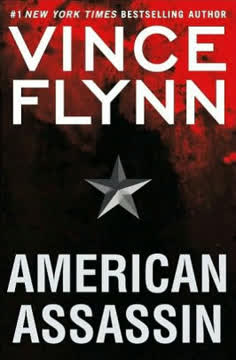
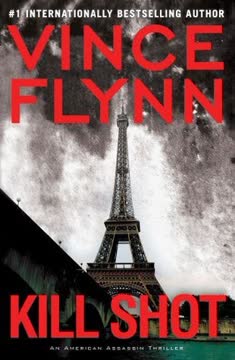
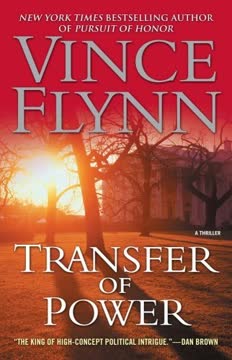
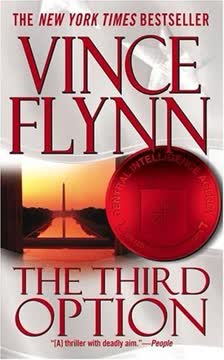
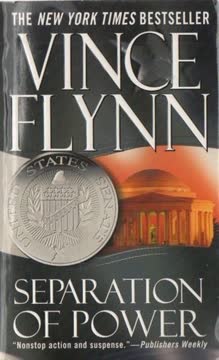
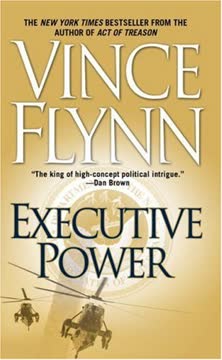
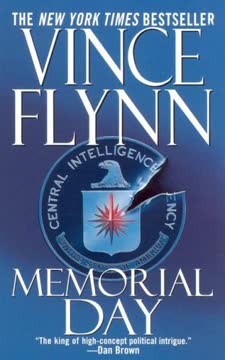
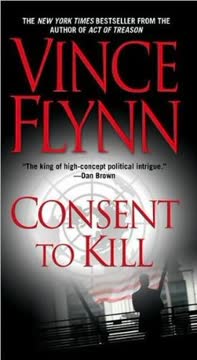


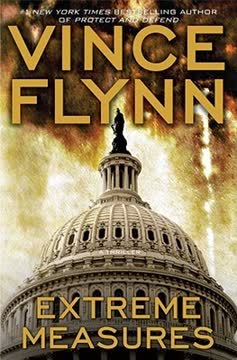
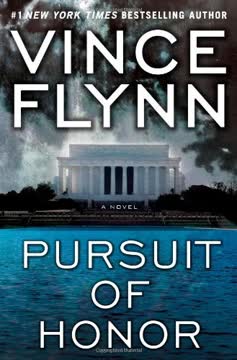
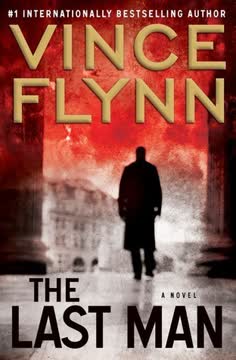
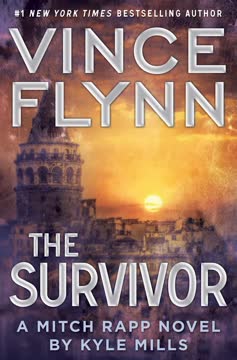
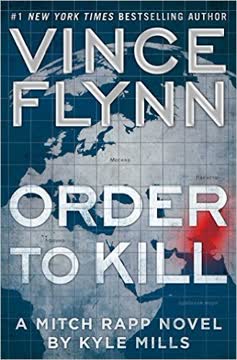
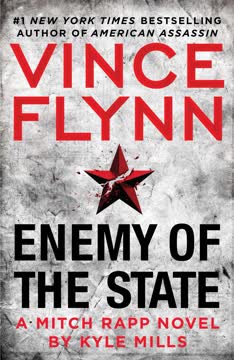
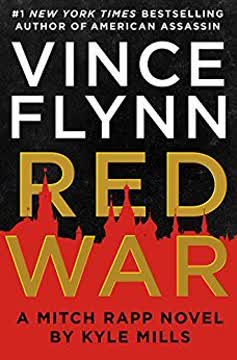
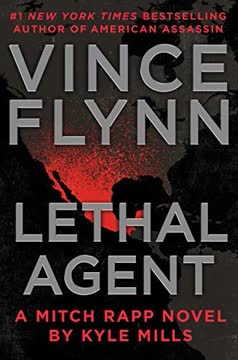
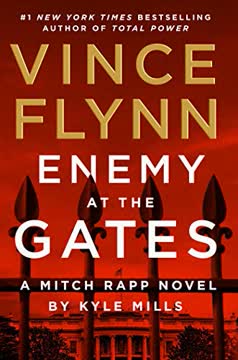
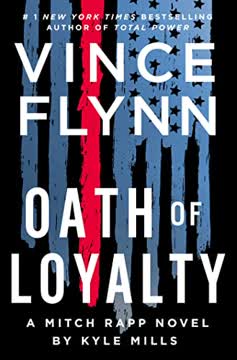
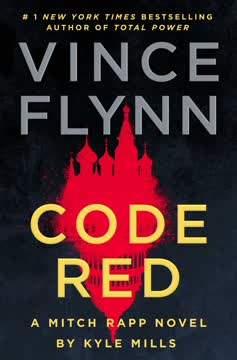
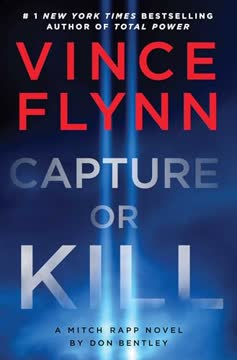
Similar Books
Download PDF
Download EPUB
.epub digital book format is ideal for reading ebooks on phones, tablets, and e-readers.
